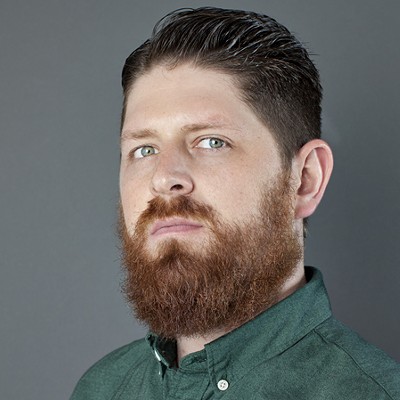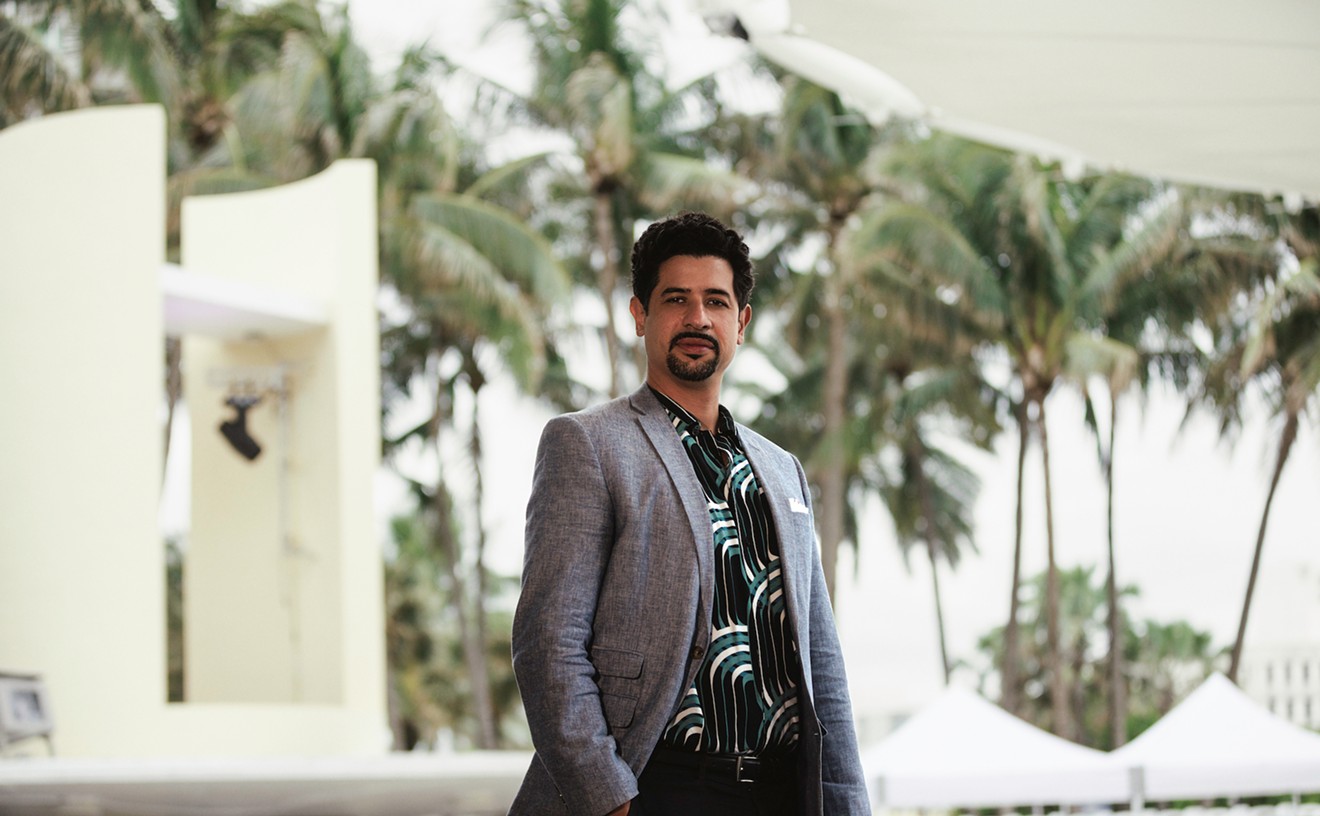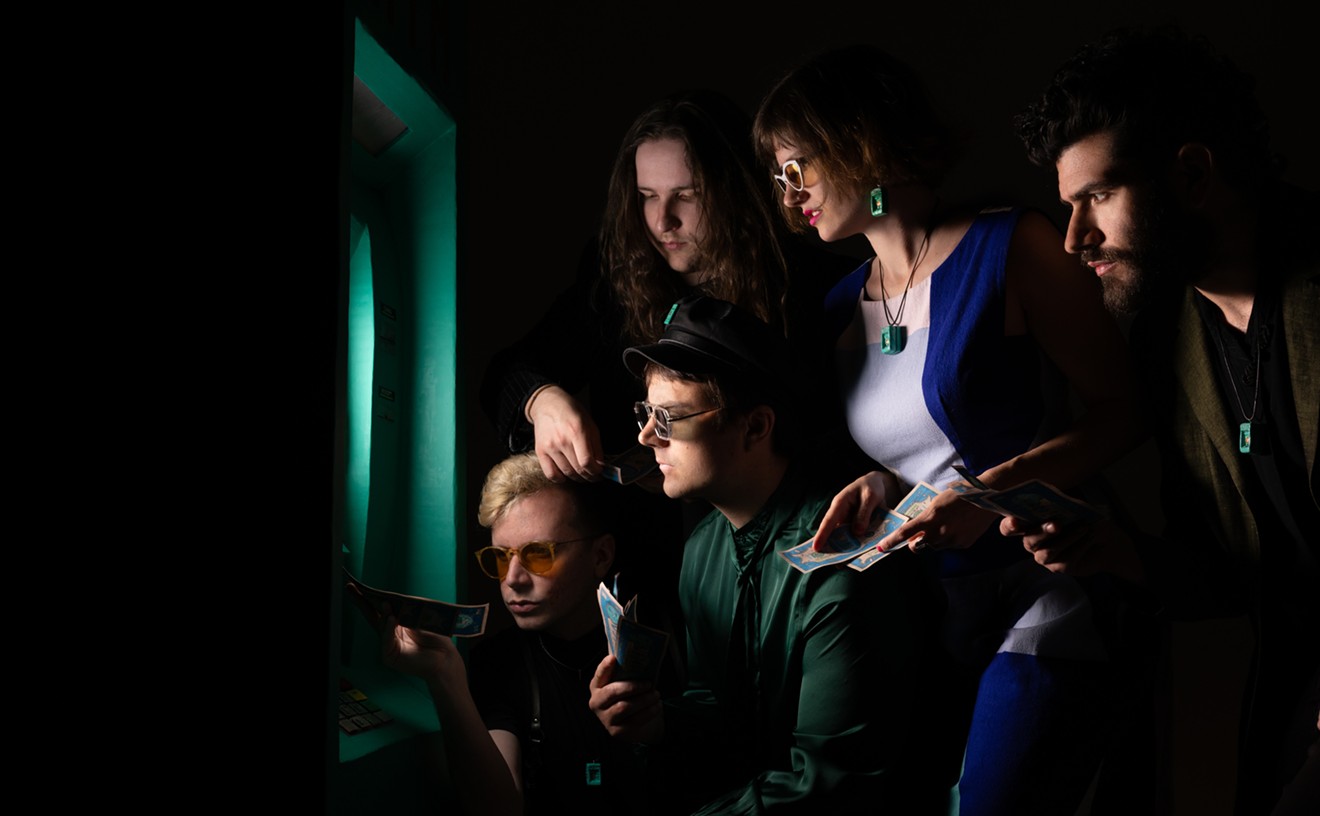Now in its second year, the Miami Music Festival is trying to overcome some of the major mistakes it made in 2009. You had overpriced wristbands, bad venues, and bloated lineups.
Basically, it was a mess. And then-Miami New Times music editor Arielle Castillo wrote, "Planned as a three-day set of simultaneous showcases à la SXSW, the inaugural edition of MMF was poorly planned and mostly poorly attended."
For some, like anti-fan Will Lopez, MMF 2010 looks no better. But as part of our research for this week's music feature The Sophomore Stage, Crossfade also spoke with festival organizer Irwin Kornfeld. And he has a few words for the critics.
Is there a particular reason why you chose Miami over so many other cities that don't yet have this kind of music festival?
Helping Miami rediscover its live music history was one opportunity we saw. But Miami is also probably one of the most diverse music markets in the world because of the incredible mix of cultures here. New and developing artists festivals in other cities tend to be, not exclusively but for the most part, rock- and pop-focused. In Miami, we had an opportunity to serve independent rock artists, singers, and songwriters, but also urban, hip-hop, R&B, jazz, Caribbean, and Latin artists. So we could take the emerging artist festival form and create it Miami-style.
Do you think this city's music scene is mature enough to support a festival?
I think it's important for the community to understand that this is a long-term project. Some are early adopters and come on quickly. Others take a show me attitude and will take time to join. We've seen in our first two years, a tremendous coming together of those in Miami who are interested in what we're trying to do and almost all of them understand that this will take time.
Looking at the size of the lineup made me nervous. Do you think the Miami Music Festival is being too ambitious with the number of performances this year?
We're less than half the size of festivals like ours in other cities. Miami is a big place and South Florida's got an awful lot of people. And given the diversity of musical tastes, we are only scratching the surface in terms of the number of acts and the number of clubs and the communities that we can serve.
There's been criticism of the application process for bands. Can you break down how it works exactly?
This is one of the elements of the festival that is identical to the processes in other festivals around the country. We borrowed every bit of it from models that have been successful over 25 and 30 years. Bands apply to a call for applications. They pay a nominal fee, which by the way doesn't even cover the cost of the process. And they submit their music.
Does the MMF actually seek out and request applications from bands? A number of local bands didn't even know that applications were being accepted.
The Miami Music Festival announced its call for applications through every major music outlet we could find. So the Recording Academy made their membership aware. The Latin Recording Academy made their membership aware. ASCAP, BMI, SESAC, SoundExchange [made their membership aware].
We were in the New Times. It was covered in most entertainment media. We can only do what we can do. If anybody went on Sonicbids or Broadjam, they saw our application call. And we got a good number of applications. So a lot of people saw.
As far as actually picking the bands from those applications that were submitted, what are the criteria? How does a band get picked?
Musically, we're looking for acts that have commercial potential, either on the club scene or as recording artists, sometimes even as music creators. And we have people who have spent many, many years listening to music and writing about music, in the studio, on radio, listening to these acts and making the best decisions they can. The one thing that we know is that there is much, much more music than we could ever put on.
Why aren't Grand Central, the Vagabond, and the Electric Pickle part of the MMF?
We put out a broad call and we followed up with online and telephone communication. We went out personally to each and every club that would have us. And we campaigned mightily, spending time and effort and money in some cases, trying to convince club owners that they should participate. We worked very hard on the three clubs that you mentioned and we were turned down by each. It was unfortunate. I think that at least one of them will be with us next year. But no one should think that we have excluded anyone.
So I guess you think, like a lot of people do, that these clubs need to eventually be a part of the festival?
We very much wanted them to be a part of this year. We would love for them to be a part of it next year. And we'll work very hard in our invitation to them next year, hoping that they will see the benefit of being part of the festival.
There are people who see the MMF as a corporate-style weekend ...
Can I address this? There is no corporate ownership of the Miami Music Festival. We are a group of small businessmen. We've been around a long time. We're not wealthy individuals. None of us could be considered wealthy. We made tremendous personal investments the first year and we're going to make another investment this year. Nobody connected with the festival, none of the owners have made a penny. For anyone to think that $35 fees or the $10 cover charges have enriched anyone at the expense of anyone is simply a misinformed judgment.
We're a little company and we're small people who come from this community who are trying to get something done. And we're getting it done with the help of so many people who have given us unflagging support. There is a list of heroes who are responsible for this happening. And anyone who either listens to or focuses on a very, very small group of people who don't understand what we're doing, they're misguided. There aren't that many of them that are unhappy.
They use the media tools of the Internet and take opinions and make statements that are patently incorrect, without doing any research. And most people who understand the business and are part of the artist community, and care to find out who we are and what were doing, are extremely positive and helpful and supportive. And that's the bulk of it.
We made some mistakes last year. We tried to correct them this year. My guess is we'll do better, but we'll still make some mistakes. If people care enough to voice their opinions, let them come and help us, because this is great for the city.
Read Crossfade's interview with local punk and Miami Music Festival critic Will Lopez.











